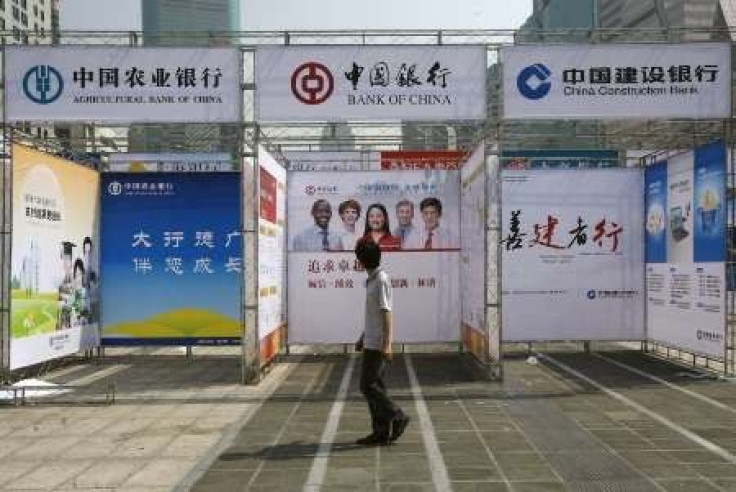China raises bank reserves to fight inflation

China on Friday raised banks' required reserves by 50 basis points, showing no let-up in a campaign to stamp out stubbornly high inflation.
The fifth such increase since October will force the country's biggest lenders to lock up a record amount of their deposits at the central bank, removing cash from the economy that otherwise would be pressuring prices higher.
The move by the People's Bank of China followed an acceleration in inflation to 4.9 percent in the year to January from 4.6 percent in December.
Over the past four months, China has also raised interest rates three times and ordered banks to issue fewer loans.
By themselves, the individual tightening steps have been small and incremental, but taken together they amount to an aggressive effort by Beijing to rein in inflation, which has been a source of political unrest throughout Chinese history.
China has been moving pretty swiftly in monetary tightening this year, said Zhu Song, a senior trader at Bank of Communications in Beijing.
In global markets, copper dipped, oil lost ground and the currencies of commodity exporters such as Australia, which are sensitive to Chinese demand, weakened.
We think there is more to come in terms of reserve requirements and higher rates and a more rapid appreciation of the currency than the market is discounting, said Adam Cole, global head of currency strategy at RBC Capital Markets.
NO SURPRISE
The latest decision to raise required reserves was, in fact, widely expected by investors in China, because a raft of central bank bills will soon be maturing, adding more cash to the economy.
The central bank has to raise banks' reserve requirements to mop up liquidity, said Wang Hu, economist at Guotai Junan Securities in Shanghai.
It's possible for the central bank to raise required reserve ratios further, but the room is becoming limited, he added.
Despite the lack of a surprise factor, traders said the impact of the higher reserves on Chinese markets would be big, potentially putting an end to a recent run-up in equities, setting a floor on money market rates and boosting sentiment toward the yuan.
In a short statement posted on its website, the People's Bank of China said the increase will be effective from February 24.
The latest rise in banks' reserve requirements will officially take the level for the country's biggest lenders to a record 19.5 percent.
Excess cash in the economy, stemming from China's trade surplus, is a root cause of fast-rising prices, prompting the central bank to use reserve requirements to lock up a bigger share of deposits and thereby slow money growth.
Anti-inflation talk from the central bank in recent months has primed investors for more policy tightening and, even with the latest move, many believe more is to come and is likely to be front-loaded.
Economists polled by Reuters expect the central bank to raised benchmark interest rates twice more in the first half of this year, before keeping them steady in the second half.
Currently, China's economic growth is strong and inflation pressures are big. It's necessary to continue to manage liquidity, said Lu Zhengwei, economist at Industrial Bank in Shanghai.
I believe a price must be paid to bring down inflation. Some industries may suffer as a result of the tightening but it won't hurt the broad economy.
© Copyright Thomson Reuters 2024. All rights reserved.











